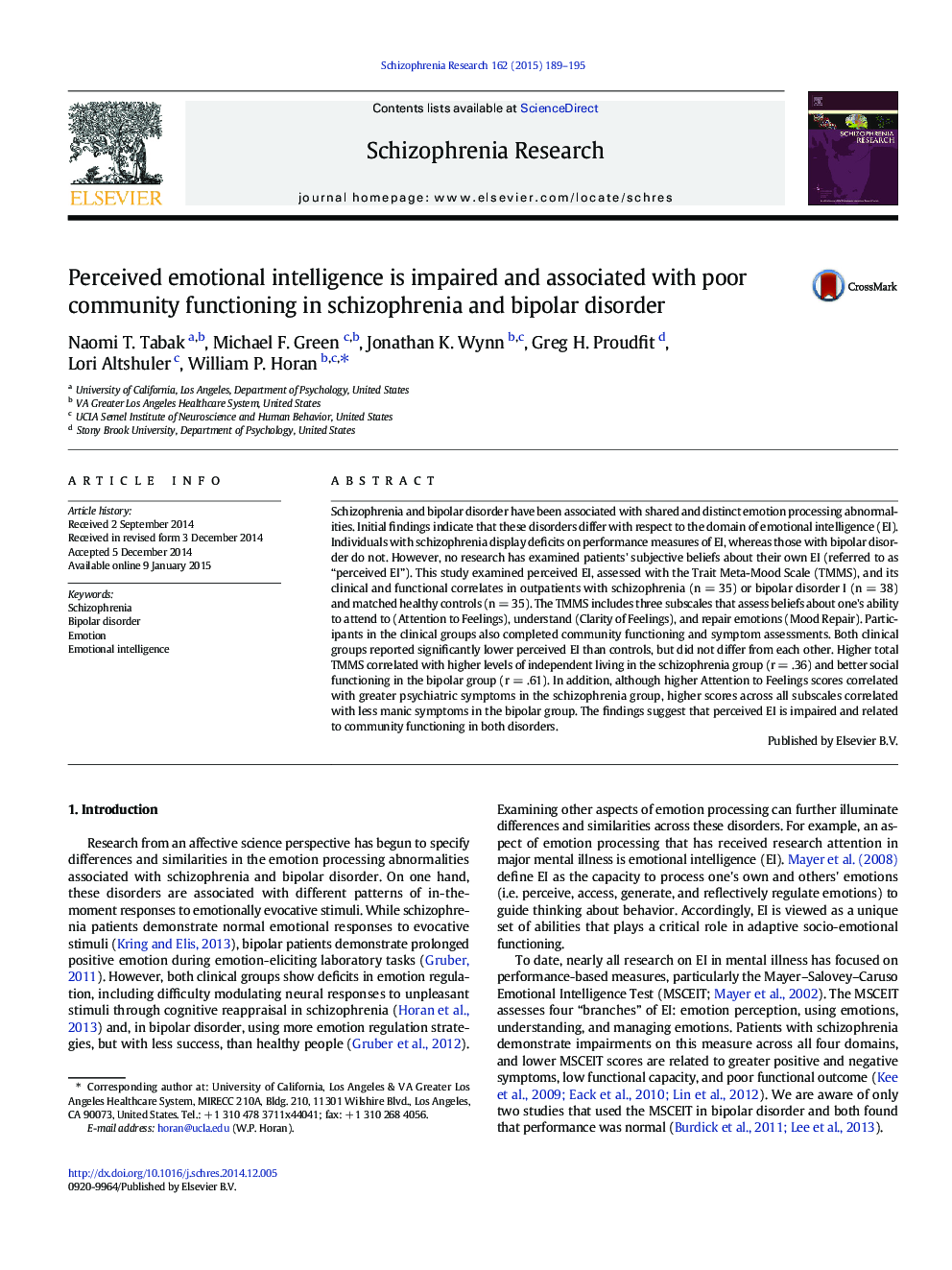| Article ID | Journal | Published Year | Pages | File Type |
|---|---|---|---|---|
| 6824341 | Schizophrenia Research | 2015 | 7 Pages |
Abstract
Schizophrenia and bipolar disorder have been associated with shared and distinct emotion processing abnormalities. Initial findings indicate that these disorders differ with respect to the domain of emotional intelligence (EI). Individuals with schizophrenia display deficits on performance measures of EI, whereas those with bipolar disorder do not. However, no research has examined patients' subjective beliefs about their own EI (referred to as “perceived EI”). This study examined perceived EI, assessed with the Trait Meta-Mood Scale (TMMS), and its clinical and functional correlates in outpatients with schizophrenia (n = 35) or bipolar disorder I (n = 38) and matched healthy controls (n = 35). The TMMS includes three subscales that assess beliefs about one's ability to attend to (Attention to Feelings), understand (Clarity of Feelings), and repair emotions (Mood Repair). Participants in the clinical groups also completed community functioning and symptom assessments. Both clinical groups reported significantly lower perceived EI than controls, but did not differ from each other. Higher total TMMS correlated with higher levels of independent living in the schizophrenia group (r = .36) and better social functioning in the bipolar group (r = .61). In addition, although higher Attention to Feelings scores correlated with greater psychiatric symptoms in the schizophrenia group, higher scores across all subscales correlated with less manic symptoms in the bipolar group. The findings suggest that perceived EI is impaired and related to community functioning in both disorders.
Related Topics
Life Sciences
Neuroscience
Behavioral Neuroscience
Authors
Naomi T. Tabak, Michael F. Green, Jonathan K. Wynn, Greg H. Proudfit, Lori Altshuler, William P. Horan,
